 |
Speeduino
|
 |
Speeduino
|
#include <stdint.h>#include <avr-fast-shift.h>#include <avr-fast-div.h>
Go to the source code of this file.
Macros | |
| #define | DIV_ROUND_DOWN -1 |
| Rounding behavior: always round down. | |
| #define | DIV_ROUND_UP 1 |
| Rounding behavior: always round up. | |
| #define | DIV_ROUND_NEAREST 0 |
| Rounding behavior: round to nearest. | |
| #define | DIV_ROUND_BEHAVIOR DIV_ROUND_NEAREST |
| Integer division rounding behavior. | |
| #define | DIV_ROUND_CORRECT(d, t) ((t)(((d)>>1U)+(t)DIV_ROUND_BEHAVIOR)) |
| Computes the denominator correction for rounding division based on our rounding behavior. | |
| #define | DIV_ROUND_CLOSEST(n, d, t) |
| Rounded integer division. | |
| #define | UDIV_ROUND_CLOSEST(n, d, t) ((t)((n) + DIV_ROUND_CORRECT(d, t))/(t)(d)) |
| Rounded unsigned integer division. | |
| #define | IS_INTEGER(d) ((d) == (int32_t)(d)) |
| Test whether the parameter is an integer or not. | |
| #define | TEST_AND_APPLY(precision) |
Functions | |
| uint8_t | random1to100 (void) |
| template<uint16_t divisor> | |
| static constexpr uint16_t | div_round_closest_u16 (uint16_t n) |
| Rounded unsigned integer division optimized for compile time constants. | |
| static uint32_t | div360 (uint32_t n) |
| Optimised integer division by 360. | |
| template<uint8_t b> | |
| static uint32_t | rshift_round (uint32_t a) |
| Rounded arithmetic right shift. | |
| static uint32_t | percentageApprox (uint16_t percent, uint32_t value) |
| Integer based percentage calculation: faster, but less accurate, than percentage() | |
| static uint32_t | percentageApprox (uint8_t percent, uint32_t value) |
| Slightly faster version of percentageApprox(uint16_t, uint32_t), since we know percent<256. | |
| static uint32_t | percentage (uint16_t percent, uint32_t value) |
| Integer based percentage calculation. | |
| static uint16_t | halfPercentage (uint8_t percent, uint16_t value) |
| Integer based half-percentage calculation. | |
| static int16_t | nudge (int16_t min, int16_t max, int16_t value, int16_t nudgeAmount) |
| Make one pass at correcting the value into the range [min, max) | |
| template<typename TDividend , typename TDivisor > | |
| static constexpr TDividend | fast_div_closest (TDividend dividend, TDivisor divisor) |
| Same as fast_div(), except this will round to nearest integer instead of truncating. | |
| template<class T > | |
| constexpr const T & | clamp (const T &v, const T &lo, const T &hi) |
| clamps a given value between the minimum and maximum thresholds. | |
| static uint16_t | LOW_PASS_FILTER (uint16_t input, uint8_t alpha, uint16_t prior) |
| Simple low pass IIR filter 16-bit values. | |
| static int16_t | LOW_PASS_FILTER (int16_t input, uint8_t alpha, int16_t prior) |
| Simple low pass IIR filter for S16 values. | |
| static uint8_t | scale (const uint8_t from, const uint8_t fromRange, const uint8_t toRange) |
| Scale a value from one range to another. | |
| static uint8_t | fast_map (const uint8_t from, const uint8_t fromLow, const uint8_t fromHigh, const uint8_t toLow, const uint8_t toHigh) |
| Specialist version of map(long, long, long, long, long) for performance. | |
| static uint16_t | div100 (uint16_t n) |
| Performance optimised integer division by 100. I.e. same as n/100. | |
| static int16_t | div100 (int16_t n) |
| Performance optimised integer division by 100. I.e. same as n/100. | |
| static uint32_t | div100 (uint32_t n) |
| Performance optimised integer division by 100. I.e. same as n/100. | |
| static int32_t | div100 (int32_t n) |
| Performance optimised integer division by 100. I.e. same as n/100. | |
Variables | |
| static constexpr uint8_t | ONE_HUNDRED_PCT = 100U |
| This is only here to eliminate magic numbers. | |
clamps a given value between the minimum and maximum thresholds.
Uses operator< to compare the values.
| T | Any type that supports operator< |
| v | The value to clamp |
| lo | The minimum threshold |
| hi | The maximum threshold |

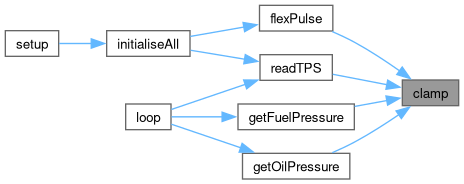
Performance optimised integer division by 100. I.e. same as n/100.
Uses the rounding behaviour controlled by DIV_ROUND_BEHAVIOR
| n | Dividend to divide by 100 |

Performance optimised integer division by 100. I.e. same as n/100.
Uses the rounding behaviour controlled by DIV_ROUND_BEHAVIOR
| n | Dividend to divide by 100 |

Performance optimised integer division by 100. I.e. same as n/100.
Uses the rounding behaviour controlled by DIV_ROUND_BEHAVIOR
| n | Dividend to divide by 100 |

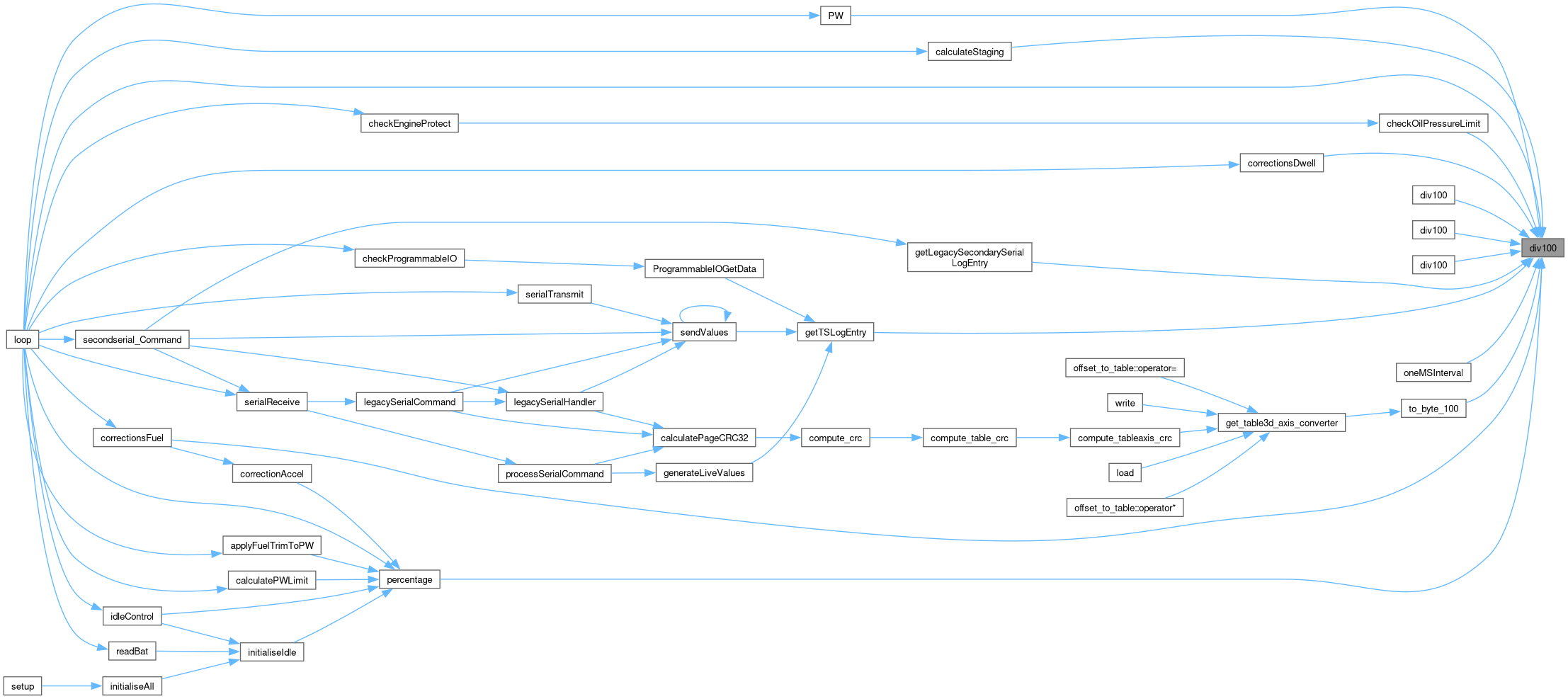
Performance optimised integer division by 100. I.e. same as n/100.
Uses the rounding behaviour controlled by DIV_ROUND_BEHAVIOR
| n | Dividend to divide by 100 |

Optimised integer division by 360.
| n | The numerator (dividee) (an integer) |

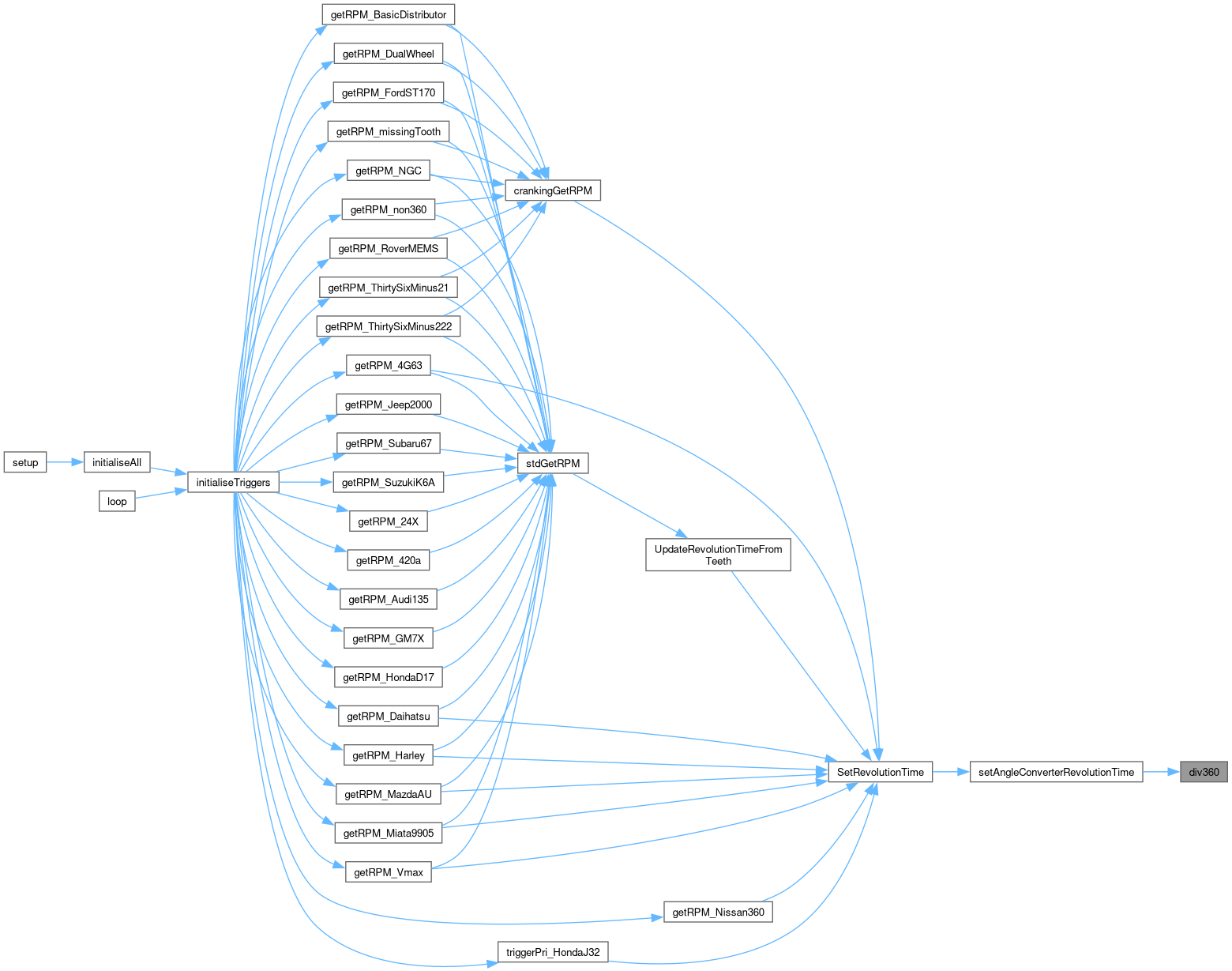
|
staticconstexpr |
Same as fast_div(), except this will round to nearest integer instead of truncating.
Minor performance drop compared to non-rounding version.

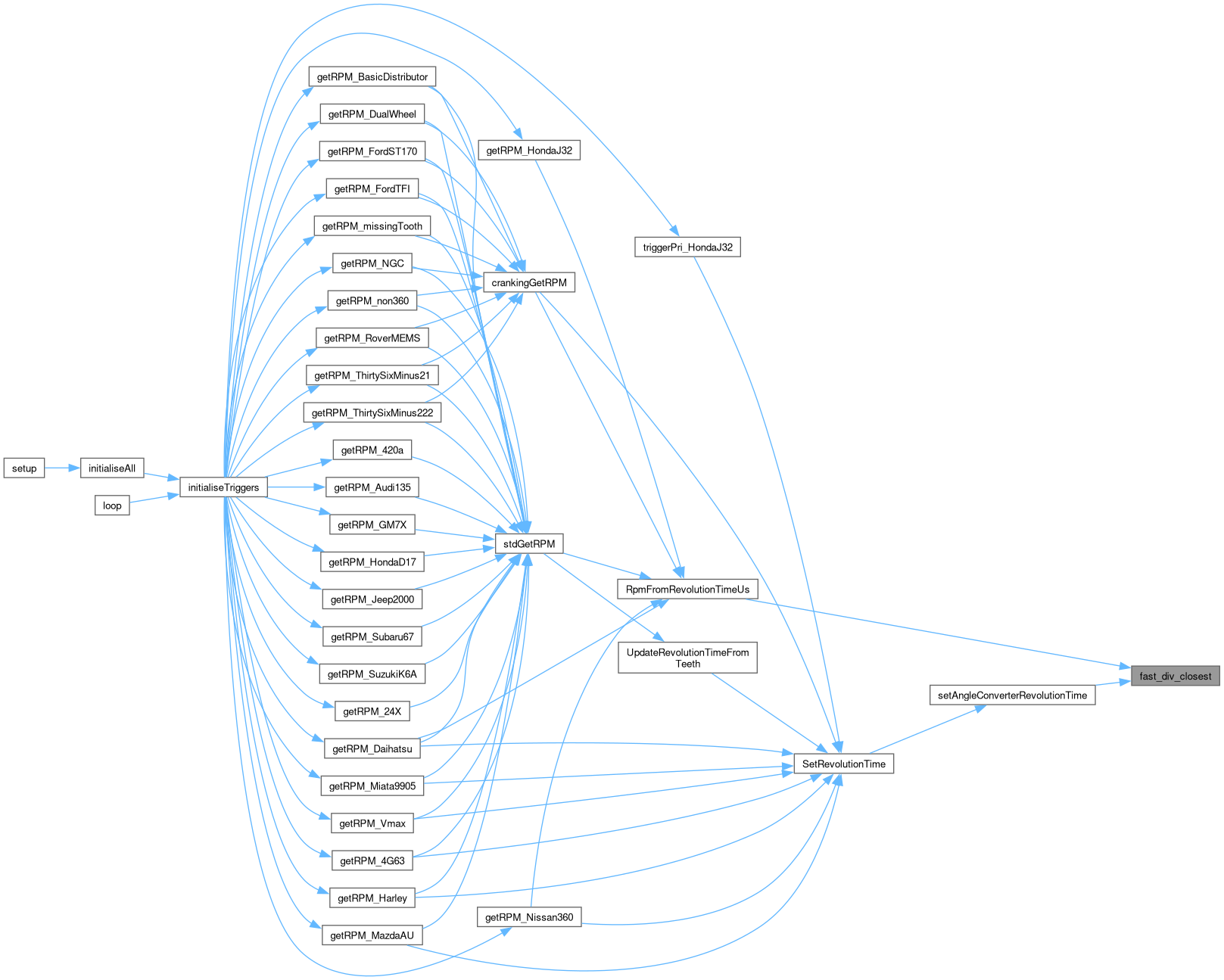
|
inlinestatic |
Specialist version of map(long, long, long, long, long) for performance.
Maps a value from one range to another.
| from | Value to map [fromLow, fromHigh] |
| fromLow | Lower bound of the from range |
| fromHigh | Upper bound of the from range |
| toLow | Lower bound of the to range |
| toHigh | Upper bound of the to range |

Integer based half-percentage calculation.
| percent | The percent to calculate ([0, 100]) |
| value | The value to operate on |


Simple low pass IIR filter for S16 values.

Simple low pass IIR filter 16-bit values.
This is effectively implementing the smooth filter from playground.arduino.cc/Main/Smooth But removes the use of floats and uses 8 bits of fixed precision.
| input | incoming unfiltered value |
| alpha | filter factor. 0=off, 255=full smoothing (0.00 to 0.99 in float, 0-99%) |
| prior | previous filtered value. |

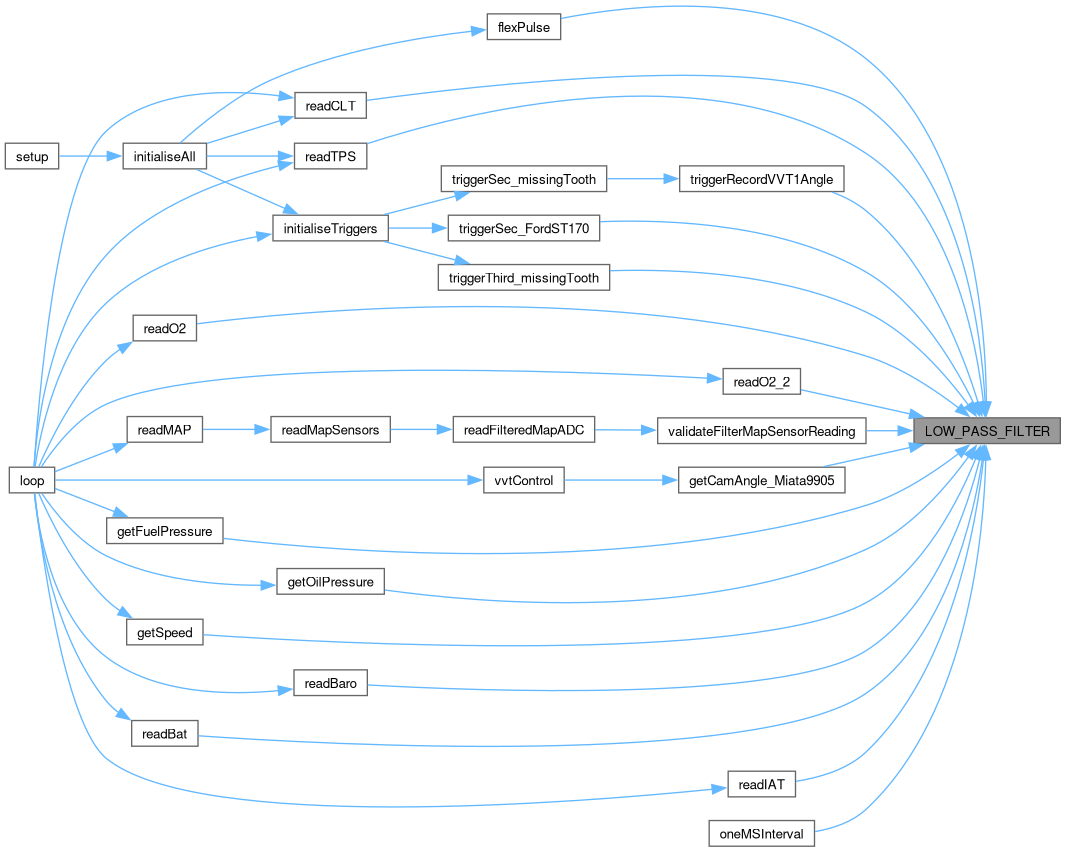
Make one pass at correcting the value into the range [min, max)
| min | Minimum value (inclusive) |
| max | Maximum value (exclusive) |
| value | Value to nudge |
| nudgeAmount | Amount to change value by |

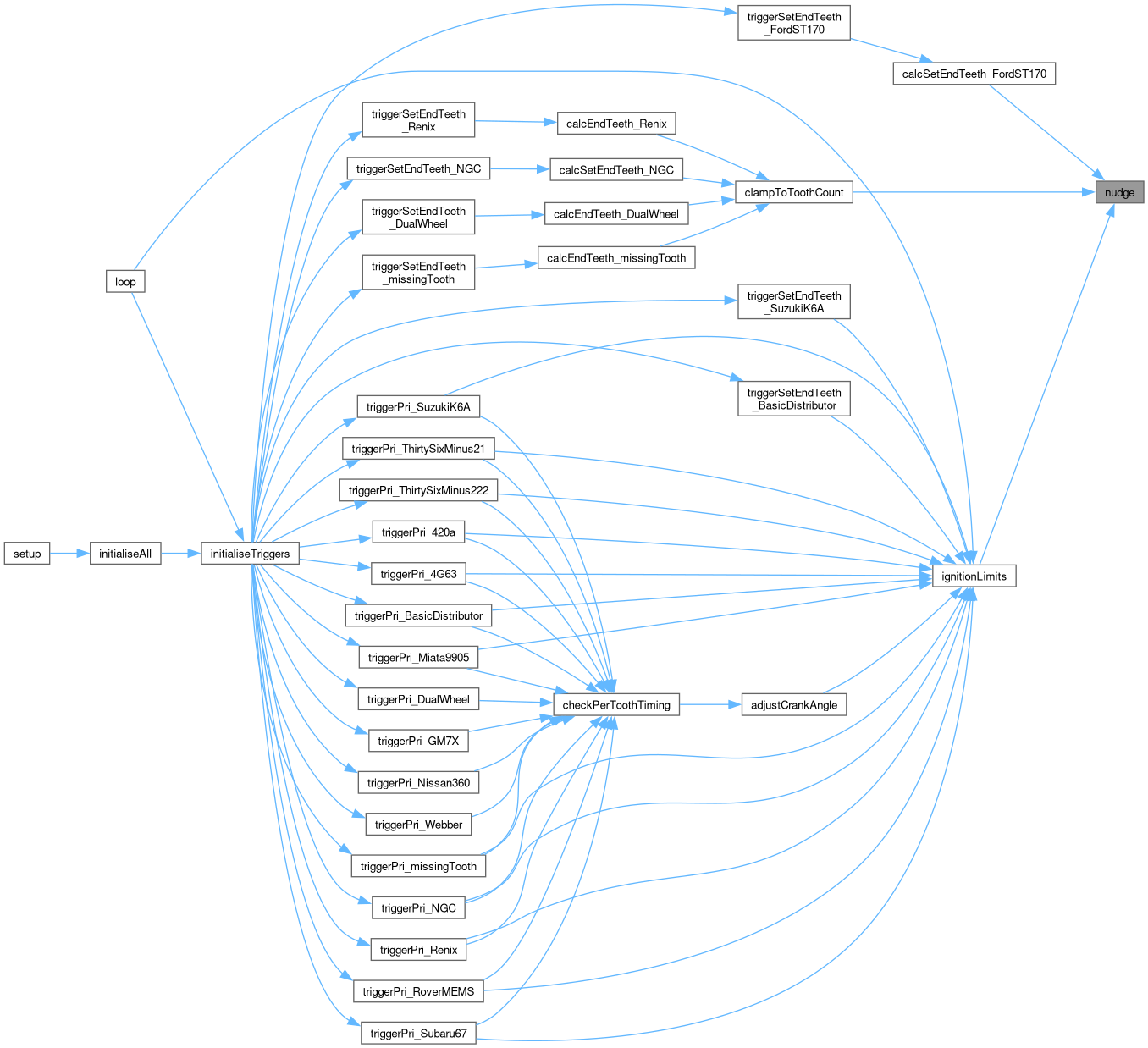
Integer based percentage calculation.
| percent | The percent to apply to value |
| value | The value to operate on |

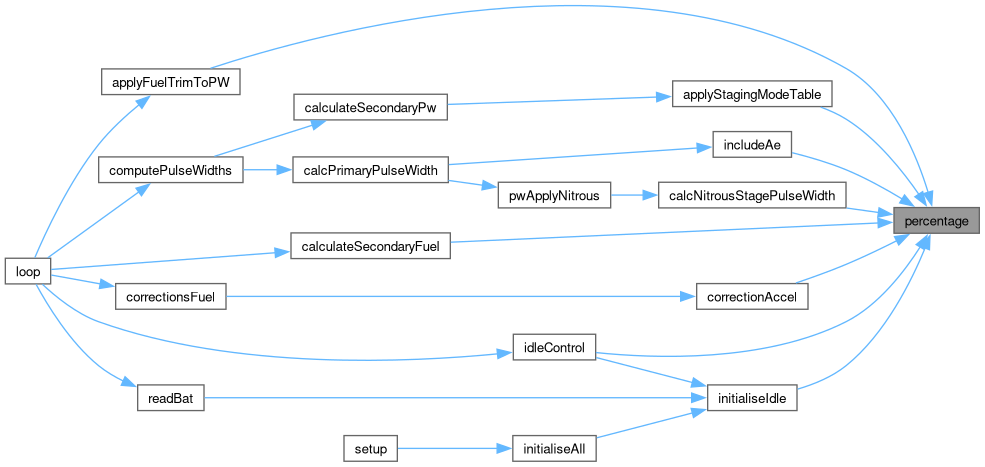
Integer based percentage calculation: faster, but less accurate, than percentage()
Recommended use case is when dealing with percentages >50%.
| percent | The percent to apply to value |
| value | The value to operate on |
| Percent | Maximum Error | Example |
|---|---|---|
| 1%-6% | 9% | percentage(4, 563) -> 23 |
percentageApprox(4, 563) -> 21 | ||
| 7%-40% | 1% | percentage(10, 1806) -> 181 |
percentageApprox(10, 1806) -> 179 | ||
| 41%+ | <0.3% | percentage(79, 2371) -> 1873 |
percentageApprox(79, 2371) -> 1870 |


Slightly faster version of percentageApprox(uint16_t, uint32_t), since we know percent<256.



Rounded arithmetic right shift.
Right shifting throws away bits. When use for fixed point division, this effectively rounds down (towards zero). To round-to-the-nearest-integer when right-shifting by S, just add in 2 power b−1 (which is the fixed-point equivalent of 0.5) first
| b | number of bits to shift by |
| a | value to shift |

|
inlinestatic |
Scale a value from one range to another.
Takes a value from a range of [0, fromRange] and scales it to a range of [0, toRange].
| from | Value to scale [0, fromRange] |
| fromRange | Zero based range of the from value |
| toRange | Zero based range of the to value |

